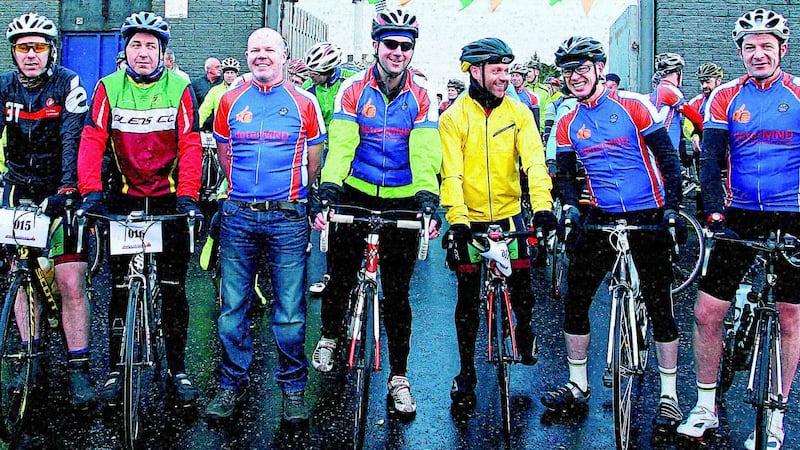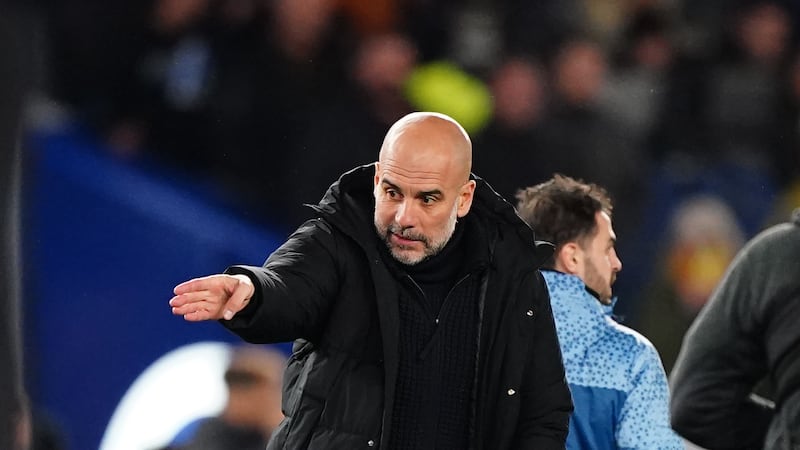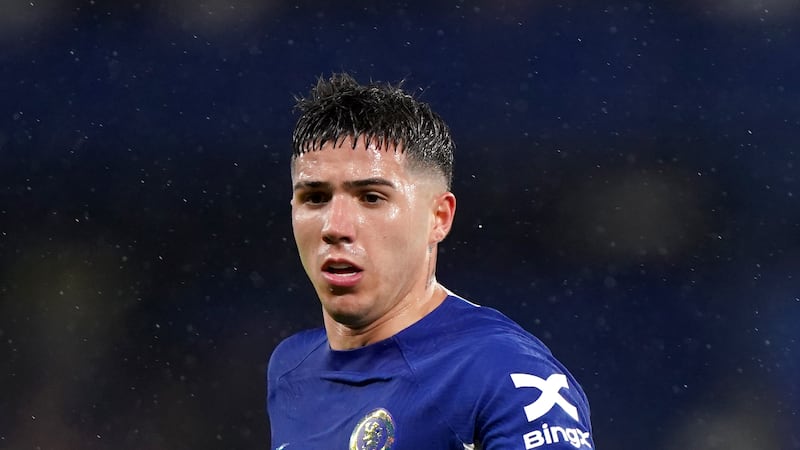I AM married. I have two children, a boy and a girl, and I am 40 years old. Anto Finnegan is married. He has two children, a boy and a girl, and he is 40 years old.
When I stopped playing gaelic football, I started cycling.
When Anto Finnegan stopped playing gaelic football, he started cycling.
For my 40th birthday, I organised a bike ride (manically competitive race) and a party. It was my perfect day - competition, company and craic. I am already thinking about next year's race.
Anto Finnegan can no longer ride his bike. Anto has lost the power of his left arm, and his right arm is going the same way. Anto has motor neurone disease.
There is no cure and it is terminal. Anto Finnegan isn't making plans for anything too far in advance. Motor neurone disease (MND) is a progressive illness.
The medical world don't know why it happens. They don't know why the body stops obeying the brain.
They don't know why the muscles cease to function while the brain remains unaffected.
It stops your hands working. Your arms. Your legs. Speech can also go. It's cruel.
Most people who are diagnosed with motor neurone disease live from two to five years.
Anto was showing symptoms in 2009. He is already defying the odds.
Rather than retreat into his own private life, Anto Finnegan is trying to make a difference.
After being diagnosed, he was shocked at the level of ignorance which surrounds his condition.
On several occasions when he disclosed to people that he had motor neurone disease, they wished him all the best.
They hoped he would get well soon.
Despite the lack of knowledge, neither the big medical companies nor governments are ploughing much money into research.
There is very limited outside support for those who are diagnosed.
There is no medicine. There is no treatment.
With whatever time he has left, Anto Finnegan wants to make a change.
Through his charity, DetermND, he is raising awareness and funds. A St Valentine's Ball has already brought in £20,000.
The most recent event took place last Sunday. At 7.30am, 125 cyclists gathered in Casement Park for a 107-mile bike ride to Croke Park.
Organised by his club-mates in St Paul's GAC, the events combined Anto's twin passions - gaelic football and cycling.
The departure point was particularly fitting. Casement Park was the ground where Anto captained the Antrim footballers to their first Championship victory in 18 years.
The west Belfast man was a loyal servant. He wore the Saffron jersey from 1994 to 2005.
A dyed-in-the-wool St Paul's man, he played on the team that won three consecutive Antrim championships.
He is still coaching underage teams.
Anto's loyalty, his role-model consistency was acknowledged on Sunday morning.
While the course presented few problems to enthusiastic club cyclists, the real heroes were the large number of relatives, friends, club-mates and colleagues who took on the challenge because they simply wanted to show their support.
Anto was at the start to send us on our way. He was trying his best to be cheery and positive.
But the look in his eyes was unmistakable. He was like the boy who must watch his friends run and play while he remains indoors.
Sportsmen are not natural observers. Listening to the buzz and chatter around Casement Park, there is little doubt Anto would have much preferred to have been taking part.
When he organised his club's bike ride to Donegal, he rode the whole journey. Like any cyclist, he relishes the sensation of coasting along in a big group, covering mile after mile.
Looking at Anto, I was reminded of the man who taught me how to ride a bike.
My uncle John. They say children and animals instinctively know when they are in the presence of a kind and gentle spirit. John Gillen was such a man.
That's why I believed him when he said I would be okay when he let go.
Home on holiday from Stoke-on-Trent, he had removed my stabilisers.
Now he was going to push me and my bike over the flat patch of ground that lies at the back of the houses in meeting House avenue.
First, he was there at my side.
His reassuring hand on my back. The sound of his polished shoes clipping off the tarmac.
Then, he was gone. And I was on my own. Flying.
You never forget that moment. I rode back to my uncle John.
He stood smiling, his eyes, as they often did, twinkling with delight. Perhaps the only person happier than me was John.
When my uncle John was 46 years old, he was diagnosed with a condition called cerebellar ataxia.
The symptoms are very similar to motor neurone disease. John went from a stick to a wheelchair to a bed.
Unable to move or hold a conversation, his mental faculties remained perfectly intact. When you told him a joke, his eyes still twinkled. My uncle John died in 2008.
It's difficult to understand why good people are afflicted with such awful misfortune.
It's an issue Sunday Independent journalist Paul Kimmage tried to tackle when he interviewed Anto Finnegan.
The exchange was recounted in kimmage's excellent article. "What's the worst thing you've ever done?" asked kimmage. "I dunno," replied Anto.
"I'd have to think about that." "It must have been bad," said Kimmage. "Why?" "They say bad things happen to bad people," said Kimmage.
"My wife would argue that bad things happen to good people and good things happen to bad people -- that's just the way the world is," said Anto. "Yes it is," agreed Kimmage.
But Anto Finnegan should know that another more important distinction separates the good and the bad. Forget about the hand dealt by fate.
The good man is remembered. The good husband, the good father, the good brother, the good uncle.
While they might leave us, they are always with us.
They are always at our side.








